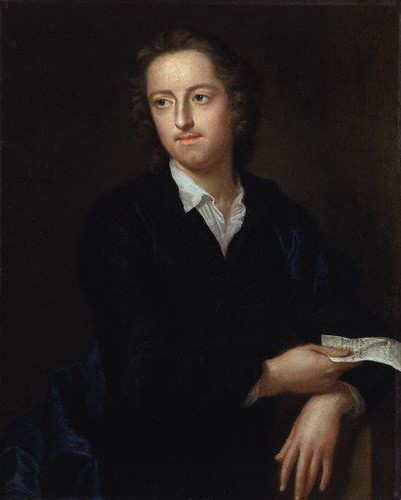Thomas Gray frases e citações
Thomas Gray: Frases em inglês
“Forbade to wade through slaughter to a throne,
And shut the gates of mercy on mankind.”
St. 17
Elegy Written in a Country Churchyard http://www.thomasgray.org/cgi-bin/display.cgi?text=elcc (written 1750, publ. 1751)
St. 19
Elegy Written in a Country Churchyard http://www.thomasgray.org/cgi-bin/display.cgi?textelcc (written 1750, publ. 1751)
St. 14
Elegy Written in a Country Churchyard http://www.thomasgray.org/cgi-bin/display.cgi?text=elcc (written 1750, publ. 1751)
Fonte: An Elegy Written In A Country Churchyard
III. 3, Line 2
The Progress of Poesy http://www.thomasgray.org/cgi-bin/display.cgi?textpppo (1754)
Fonte: Selected Poems
St. 10
Ode on a Distant Prospect of Eton College http://www.thomasgray.org/cgi-bin/display.cgi?text=odec (written 1742–1750)
Fonte: Ode on the Pleasure Arising from Vicissitude http://www.thomasgray.org/cgi-bin/display.cgi?text=oopv (1754), Line 35
St. 13
Elegy Written in a Country Churchyard http://www.thomasgray.org/cgi-bin/display.cgi?text=elcc (written 1750, publ. 1751)
St. 9
Elegy Written in a Country Churchyard http://www.thomasgray.org/cgi-bin/display.cgi?text=elcc (written 1750, publ. 1751)
“While bright-eyed Science watches round.”
Ode for Music http://www.thomasgray.org/cgi-bin/display.cgi?text=ocmu (1769), Chorus, line 3
“Rich windows that exclude the light,
And passages that lead to nothing.”
A Long Story; reported in Bartlett's Familiar Quotations, 10th ed. (1919)
“Dear, as the light that visits these sad eyes;
Dear, as the ruddy drops that warm my heart.”
I. 3. lines 39-40
The Bard (1757)
II. 2, Line 10
The Progress of Poesy http://www.thomasgray.org/cgi-bin/display.cgi?text=pppo (1754)
“E'en from the tomb the voice of Nature cries,
E'en in our Ashes live their wonted Fires.”
St. 23
Elegy Written in a Country Churchyard http://www.thomasgray.org/cgi-bin/display.cgi?text=elcc (written 1750, publ. 1751)
“Now my weary lips I close;
Leave me, leave me to repose!”
Descent of Odin http://www.thomasgray.org/cgi-bin/display.cgi?text=dooo, Line 71 (1761)
“Beyond the limits of a vulgar fate,
Beneath the good how far,—but far above the great.”
III. 3, Line 16
The Progress of Poesy http://www.thomasgray.org/cgi-bin/display.cgi?text=pppo (1754)
St. 1
Elegy Written in a Country Churchyard http://www.thomasgray.org/cgi-bin/display.cgi?text=elcc (written 1750, publ. 1751)
“From Helicon's harmonious springs
A thousand rills their mazy progress take.”
I. 1, Line 3
The Progress of Poesy http://www.thomasgray.org/cgi-bin/display.cgi?text=pppo (1754)
“Hands, that the rod of empire might have swayed,
Or waked to ecstasy the living lyre.”
St. 12
Elegy Written in a Country Churchyard http://www.thomasgray.org/cgi-bin/display.cgi?text=elcc (written 1750, publ. 1751)
The Epitaph, St. 3
Elegy Written in a Country Churchyard http://www.thomasgray.org/cgi-bin/display.cgi?text=elcc (written 1750, publ. 1751)
Variante: No farther seek his merits to disclose,
Or draw his frailties from their dread abode,
(There they alike in trembling hope repose,)
The bosom of his Father and his God.
St. 6
Ode on a Distant Prospect of Eton College http://www.thomasgray.org/cgi-bin/display.cgi?text=odec (written 1742–1750)
St. 5
Ode on a Distant Prospect of Eton College http://www.thomasgray.org/cgi-bin/display.cgi?text=odec (written 1742–1750)
“Ye towers of Julius, London's lasting shame,
With many a foul and midnight murder fed.”
II. 3. lines 87-88
The Bard (1757)
III. 2, Line 4
The Progress of Poesy http://www.thomasgray.org/cgi-bin/display.cgi?text=pppo (1754)
Fonte: Ode on the Pleasure Arising from Vicissitude http://www.thomasgray.org/cgi-bin/display.cgi?text=oopv (1754), Line 41
“Or ope the sacred source of sympathetic tears.”
III. 1, Line 12
The Progress of Poesy http://www.thomasgray.org/cgi-bin/display.cgi?text=pppo (1754)
St. 16
Elegy Written in a Country Churchyard http://www.thomasgray.org/cgi-bin/display.cgi?text=elcc (written 1750, publ. 1751)
